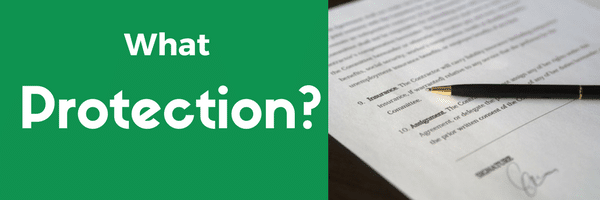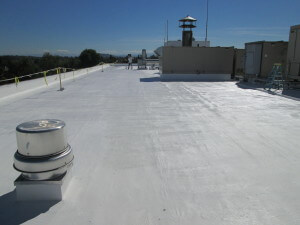
When you make a big purchase, the manufacturer or seller usually makes a substantial promise to back their product or service, also known as that little thing called a warranty. And, federal law requires that these “guarantees” or “assurances” be available for you to read before you buy a product. Yes, we did say read. And yes, trying to make sense of said warranties is like trying to read another language when you don’t even speak it.
With several years of industry experience under our belts here at SureCoat, and roughing it through the other warranties out there, it is clear that in the roofing industry, coverage varies big time and the extent of the warranty is even more elusive.
A consumer sees the word “warranty,” “consequential damages,” “labor and material,” etc., and immediately thinks insurance policy, but the reality is that the buyer:
- Only sees what the seller or manufacturer wants them to see;
- May only be seeing the warranty application – The warranty application looks like the warranty, but nothing on the page guarantees coverage;
- Pays for the warranty up front with the assumption that it covers all bases – against leaks, performance protection, labor and material costs and even that it will function for term without additional costs – but doesn’t see the actual warranty in all its glory until the roof is installed;
- Or worse yet, never sees or reads it at all!
As mentioned above, we’ve done the legwork. We’ve reviewed and compared company warranties, and this is what we’ve found.
First of all, most have a fee for any and all types of warranties available.
Second, there is a big difference between defect and performance warranties. Manufacturing defect is not a promise that the product or system is to perform a certain way, only that the manufacturer didn’t make the product wrong, which in big box companies is rare. They have a formula and they follow that formula over and over mass-producing the same old product. Not one thing is mentioned about what the roof SHOULD be doing, you will only see statements about what IS and IS NOT covered in the “will cover leaks” statement in the first sentence of the first paragraph.
Also, there is typically an obsessive amount of emphasis given to the tenure of the warranty and not so much the life cycle history of the product. A 20-year warranty is great and all, but how long has the product been on the market? And, more than that, how exactly has the product been tested? Lab testing is just the beginning; has the product been tested over a period of time out in the elements with its true performance observed? Usually not.
Pro-Rated = Red Flags
After a period of time, usually 10 years, but can be as soon as 2, the customer/contractor/building owner must come up with a percentage of the cost to replace any warranty failures. Those costs include: labor, materials, removal and disposal of roofing waste, and of those costs, warranties only cover a portion if the product was defective. If not, the owner will dish out 100% of the costs. OUCH!
And, if we didn’t drive the point home enough already, major pro tip here: anything that will make your flat roof fail prematurely is going to be excluded and not covered.
The moral of our story here?
Read, read and read some more.
Read your warranty like your roof is already leaking. Understand and know your warranty like you have to defend yourself in court, knowing exactly where to point out the words “this roof will not leak under any condition, and if it fails to do so, the manufacturer will cover all costs because of the lack of performance.”
There is no substitute for the lack of quality control, for the lack of high-quality materials, workmanship, design, and manufacturer or supplier support to ensure top roof performance.
A piece of paper will never keep water out of your building unless it says SureCoat at the top. At SureCoat, we’ve never had a claim for failed material in a system that was installed to our specifications ever in company history. We have endless amounts of support for sales, installation, and estimation. On top of that, our product has been “Field Tested” meaning we’ve tested our membrane products out in the elements for its lifecycle before we even tried to sell it. A contractor will understand what we offer and how to use it correctly, so they don’t even have to think about a warranty. But, should they need it, we offer confidence by what we do cover – think leaks and ponding water.
Some final words of wisdom, do your homework, look for case studies or proof of performance and don’t assume that a warranty covers anything or everything.




